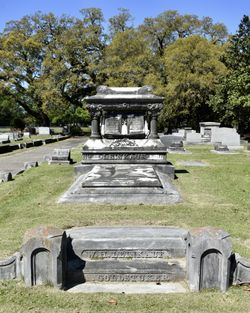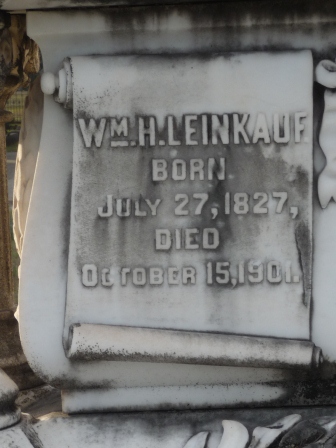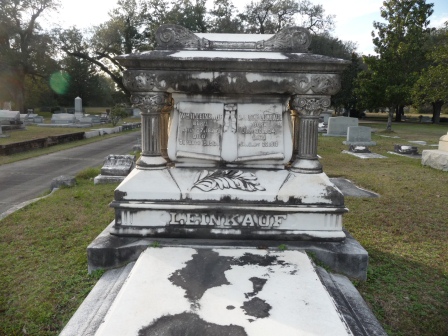William Herman Leinkauf arrived in Mobile at the age of 21 and married Caroline Bloch six years later. He established a store with two Dauphin Street locations by the outbreak of the Civil War. In the early 1870s, he was operating a dry goods emporium at 35 Dauphin Street and joined forces with Bavarian-born Leopold Strauss to form a wholesale dry goods firm by 1876.
Leinkauf later left dry goods for banking and established William H. Leinkauf & Son, a general banking business able to draw bills of exchange, buy and sell foreign exchange, receive deposits and make collections in all part of the South. The firm was on St. Francis Street in a block lined with commercial and savings banks.
The Leinkauf Historic District, south of Government Street, is named for the public school on Church Street and is the oldest continuously operating elementary school in Alabama, opening in 1903. The new school was named to honor Leinkauf, who had served on the school board for 30 years and presided over the board for 20 years. He had died two years earlier and was president at the time.
Leinkauf also served as vice consul for Denmark, Holland, Norway, and Sweden. His wife was an accomplished singer and, in May 1897, was invited to participate in a special event at the new McGill Institute. Both Mr. and Mrs. Leinkauf were devout Jews and pillars of the Jackson Street Temple.
Leinkauf's will left money to several charities, including $500 each to the Catholic Female Orphans Asylum on Conti Street and the Protestant Orphan's Asylum on Dauphin Street.
Source: mobilebaymag.com
William Herman Leinkauf arrived in Mobile at the age of 21 and married Caroline Bloch six years later. He established a store with two Dauphin Street locations by the outbreak of the Civil War. In the early 1870s, he was operating a dry goods emporium at 35 Dauphin Street and joined forces with Bavarian-born Leopold Strauss to form a wholesale dry goods firm by 1876.
Leinkauf later left dry goods for banking and established William H. Leinkauf & Son, a general banking business able to draw bills of exchange, buy and sell foreign exchange, receive deposits and make collections in all part of the South. The firm was on St. Francis Street in a block lined with commercial and savings banks.
The Leinkauf Historic District, south of Government Street, is named for the public school on Church Street and is the oldest continuously operating elementary school in Alabama, opening in 1903. The new school was named to honor Leinkauf, who had served on the school board for 30 years and presided over the board for 20 years. He had died two years earlier and was president at the time.
Leinkauf also served as vice consul for Denmark, Holland, Norway, and Sweden. His wife was an accomplished singer and, in May 1897, was invited to participate in a special event at the new McGill Institute. Both Mr. and Mrs. Leinkauf were devout Jews and pillars of the Jackson Street Temple.
Leinkauf's will left money to several charities, including $500 each to the Catholic Female Orphans Asylum on Conti Street and the Protestant Orphan's Asylum on Dauphin Street.
Source: mobilebaymag.com
Family Members
Sponsored by Ancestry
Advertisement
Explore more
Sponsored by Ancestry
Advertisement







